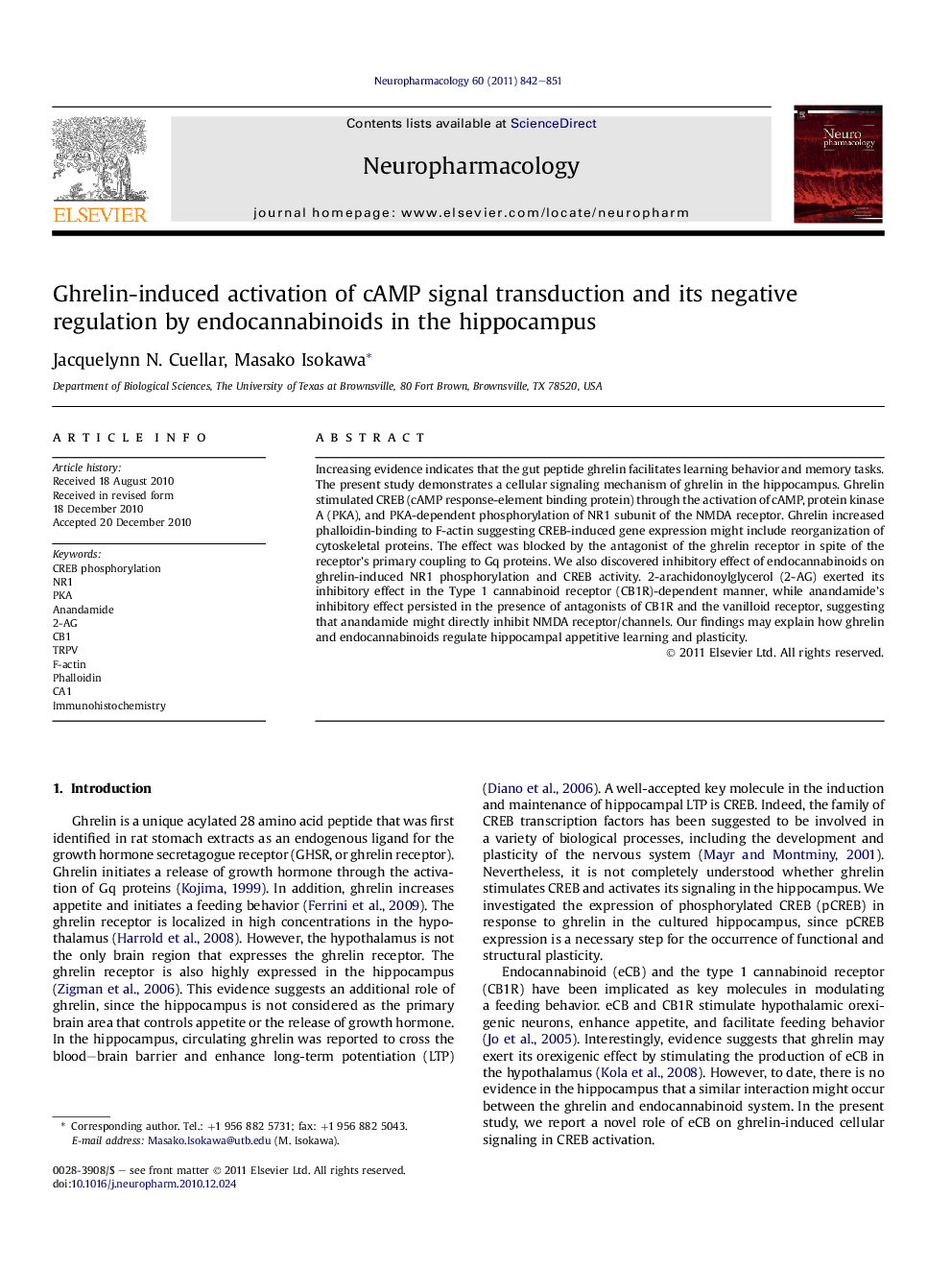| Article ID | Journal | Published Year | Pages | File Type |
|---|---|---|---|---|
| 2493971 | Neuropharmacology | 2011 | 10 Pages |
Increasing evidence indicates that the gut peptide ghrelin facilitates learning behavior and memory tasks. The present study demonstrates a cellular signaling mechanism of ghrelin in the hippocampus. Ghrelin stimulated CREB (cAMP response-element binding protein) through the activation of cAMP, protein kinase A (PKA), and PKA-dependent phosphorylation of NR1 subunit of the NMDA receptor. Ghrelin increased phalloidin-binding to F-actin suggesting CREB-induced gene expression might include reorganization of cytoskeletal proteins. The effect was blocked by the antagonist of the ghrelin receptor in spite of the receptor’s primary coupling to Gq proteins. We also discovered inhibitory effect of endocannabinoids on ghrelin-induced NR1 phosphorylation and CREB activity. 2-arachidonoylglycerol (2-AG) exerted its inhibitory effect in the Type 1 cannabinoid receptor (CB1R)-dependent manner, while anandamide’s inhibitory effect persisted in the presence of antagonists of CB1R and the vanilloid receptor, suggesting that anandamide might directly inhibit NMDA receptor/channels. Our findings may explain how ghrelin and endocannabinoids regulate hippocampal appetitive learning and plasticity.
► Ghrelin can initiate a cellular signaling mechanism for hippocampal plasticity by activating CREB. ► 2.Ghrelin activates cAMP, PKA, and PKA-dependent phosphorylation of NMDA NR1. ► 2-arachidonoylglycerol, receptor-dependently, inhibits ghrelin-induced pNR1 phosphorylation. ► Anandamide, receptor-independently, inhibits ghrelin-induced pNR1 phosphorylation. ► Endocannabinoids negatively regulates ghrelin-induced CREB phosphorylation.
